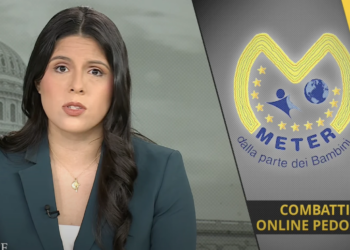President Donald Trump’s “one big, beautiful” bill is growing smaller as an unelected official continues to strike certain provisions from the Senate’s draft — a development that GOP senators are largely shrugging off as part of the normal business.
Senate Parliamentarian Elizabeth MacDonough, a purported nonpartisan arbiter of the upper chamber’s rules, is reining in Republicans’ legislative ambitions as GOP leadership races to pass Trump’s landmark bill by his self-imposed July 4 deadline. Though MacDonough has already flagged 32 provisions that will have to be struck or revised in order to pass the budget bill by a simple majority vote, Senate Republicans show no signs of questioning her authority nor calling for her removal.
“I think first and foremost that’s their job,” Republican West Virginia Sen. Jim Justice, who began serving in January, told the Daily Caller News Foundation on Tuesday. “They’re doing their job. The second thing is — how often do we try to jam so many things into one thing?”
“At the end of the day, I’m a real proponent that we’ve got a terrific bill with a lot of good in it,” Justice continued. “Let’s hope we all walk away … we didn’t get everything we wanted, but we got something that overall is really good.”
MacDonough is an appointee of the late former Democratic Senate Majority Leader Harry Reid and formerly advisedthen-Vice President Al Gore on Senate procedure in 2000 during the certification of former President George W. Bush’s electoral win. Although she was appointed to her role under a Democratic majority, Senate Republicans appear to view MacDonough as an integral part of the upper chamber’s daily workings. In her role as parliamentarian she advises the presiding officer, often a junior Republican senator, to interpret Senate procedure.
Five Republican senators, including Justice, who spoke with the DCNF on Tuesday defended MacDonough’s influential role in the so-called budget reconciliation process, which allows GOP senators to steer around Democratic opposition by passing tax and spending legislation by a simple majority vote.
Though several senators expressed frustration with certain provisions that MacDonough has determined failed to comply with so-called budget reconciliation rules, none criticized her work or suggested the conference should move to overrule her.
MacDonough is responsible for administering a six-part test to ensure sections of the bill comply with rules requiring proposals to directly affect spending or revenue with little to no budgetary impact or effect on policy. Though the parliamentarian’s rulings can be seen as subjective, GOP senators appear to view MacDonough as acting in good faith.
Republican Montana Sen. Tim Sheehy, another freshman senator, told the DCNF on Tuesday that GOP senators expected the parliamentarian to knock some of the provisions out of the Senate’s draft proposal.
“Obviously there’s frustration in a lot of corners, but I think ultimately this is the process, and every process has baby steps,” Sheehy said.
Republican Alabama Sen. Tommy Tuberville said Tuesday that the number of provisions that MacDonough has determined comply with the Senate’s budget rules is far greater than sections of the bill she has ruled against.
The Senate parliamentarian has yet to rule on whether major elements of the Senate plan, including tax cuts and reforms to Medicaid, adhere to the constraints of budget reconciliation.
“Most of them went through that we’re excited about,” Republican Alabama Sen. Tommy Tuberville told the DCNF. “We’ll argue with some of them, some of them we won’t.”
Multiple GOP senators also told the DCNF that MacDonough’s decision to nix more than three dozen sections of the bill thus far should be seen in light of Senate Republicans’ aggressive approach to get as many policy priorities in the budget plan as possible.
MacDonough is currently reviewing a spate of challenges from Senate Democrats arguing that certain provisions of the draft bill violate stringent rules underpinning the budget reconciliation process, giving her outsized influence over the president’s domestic policy agenda.
The Senate’s draft bill includes a permanent extension of the 2017 Trump tax cuts granting Americans an across the board reduction in marginal income tax rates, boosts to defense spending and immigration enforcement and sweeping reforms to Medicaid as part of an effort to enact the largest cut to mandatory spending in American history.
Senate Democrats have pledged to contest a wide swath of provisions within the package, casting the parts of the bill MacDonough strikes out as procedural victories.
Senate Republicans’ quiet defense of MacDonough could be seen as an early indicator that they will not challenge her authority during the make-or-break week that Senate GOP leadership is steering Trump’s bill through the upper chamber.
Senate Majority Leader John Thune told reporters earlier in June that he would not overrule the parliamentarian if she issued an adverse ruling against Republicans during the budget reconciliation process.
Thune similarly sought to avoid a direct confrontation with the parliamentarian in May over repealing a series of Biden-era waivers allowing California to dictate national environmental policy. The majority leader instead maneuvered through a series of innovative procedural votes to rescind the Golden state’s de facto national electric vehicle (EV) mandate rather than directly challenge MacDonough’s authority.
A spokesperson for Thune referred the DCNF to comments the majority leader made to the Wall Street Journal’s Kim Strassel Tuesday. Thune told Strassel that Senate Republicans have backup plans for most of the provisions that MacDonough has struck from their budget bill and are optimistic that the parliamentarian will sign off on revised language that complies with budget rules.
“In most of those cases, we have a plan B and a plan C … we’ve had contingency plans, we’re going back at her, and we think we’ll get a lot of that restored,” Thune told Strassel. “But we’re still going to get a ton of what we wanted in this, and this is the president’s agenda, and so this will be the fulfillment and implementation of that.”
A senior GOP aide clarified that Thune’s contingency plans involve working with the White House to identify alternative ways allowing Republicans to enact items the parliamentarian has determined violate budget rules.
Proposals that MacDonough rules against would be subject to the filibuster’s 60-vote legislative threshold, putting some policy goals out of reach absent buy-in from Senate Democrats.
The Thune-led diplomatic approach that Senate Republicans are taking toward the parliamentarian could be a noticeable departure from Democratic lawmakers who sharply criticized her prior to the passage of former President Joe Biden’s American Rescue Plan in 2021. Then, MacDonough had notably scrapped proposals to hike the federal minimum wage to $15 and grant mass amnesty to illegal immigrants. Though some far-left House Democrats called for MacDonough’s ouster at the time, no Senate Democrat called for her firing and just a limited number advocated for ignoring her rulings.
“Abolish the filibuster. Replace the parliamentarian,” Democratic Minnesota Rep. Ilhan Omar said in a post on X in February 2021. “What’s a Democratic majority if we can’t pass our priority bills? This is unacceptable.”
Thune has similarly shown no appetite for firing MacDonough from the role that she has held since 2012. The only parliamentarian to be ousted by a Senate majority leader was nearly 25 years ago in 2001 — just months into Bush’s first term.
The last time Republicans passed a budget reconciliation bill was in 2017 and the filibuster-proof process is seen as a rare opportunity to pass often-partisan legislation without having to obtain support from the other party.
Senate Republicans started working on a budget reconciliation package long before a Republican trifecta was elected in November and have suggested they would test the limits of what is possible to enact within the constraints of Senate procedure.
Senate Majority Whip John Barrasso, the number two ranking Republican, similarly argued Tuesday that the parliamentarian’s determination that a provision violates budget rules is not the end-all-be-all. GOP senators have notably sent revamped proposals to the parliamentarian for review that she initially ruled against. These provisions include funding for states to conduct immigration enforcement and allowing some federal lands to be made eligible for sale to public and private bidders.
“If the parliamentarian says ‘as written we’re not approving it to this point’ that doesn’t mean that you can’t go … rewrite it and dial it a little differently,” Barrasso told the DCNF. “We’re continuing to adjust and move forward.”
Thune also told Strassel that Senate Republicans are already working with the parliamentarian to ensure that a major proposal to transfer some federal food aid costs to states meets the upper chamber’s budget rules.
MacDonough initially ruled that the Supplemental Nutrition Assistance Program (SNAP) cost-share provision could not be included in the final bill. The proposal could save taxpayers as much as $40 billion over a decade, giving the provision heightened importance as Senate Republicans hunt for savings to meet their goal of slashing $1.5 trillion over a ten-year period within the budget bill.
“I think it’s gonna be blessed,” Republican Arkansas Sen. John Boozman, the chairman of the Senate’s agriculture panel, told reporters regarding the revamped SNAP proposal.
All republished articles must include our logo, our reporter’s byline and their DCNF affiliation. For any questions about our guidelines or partnering with us, please contact [email protected].
DONATE TO BIZPAC REVIEW
Please help us! If you are fed up with letting radical big tech execs, phony fact-checkers, tyrannical liberals and a lying mainstream media have unprecedented power over your news please consider making a donation to BPR to help us fight them. Now is the time. Truth has never been more critical!
Success! Thank you for donating. Please share BPR content to help combat the lies.
We have no tolerance for comments containing violence, racism, profanity, vulgarity, doxing, or discourteous behavior. Thank you for partnering with us to maintain fruitful conversation.




![Man Arrested After Screaming at Senators During Big Beautiful Bill Debate [WATCH]](https://www.right2024.com/wp-content/uploads/2025/06/Man-Arrested-After-Screaming-at-Senators-During-Big-Beautiful-Bill-350x250.jpg)











